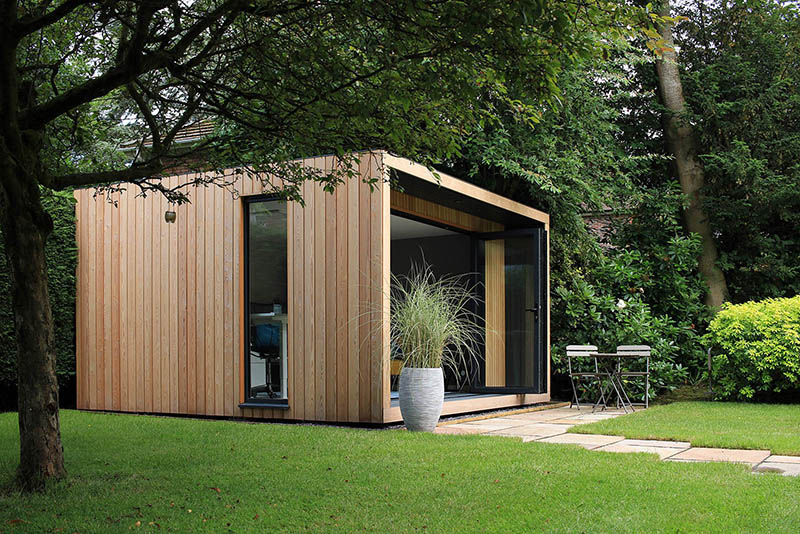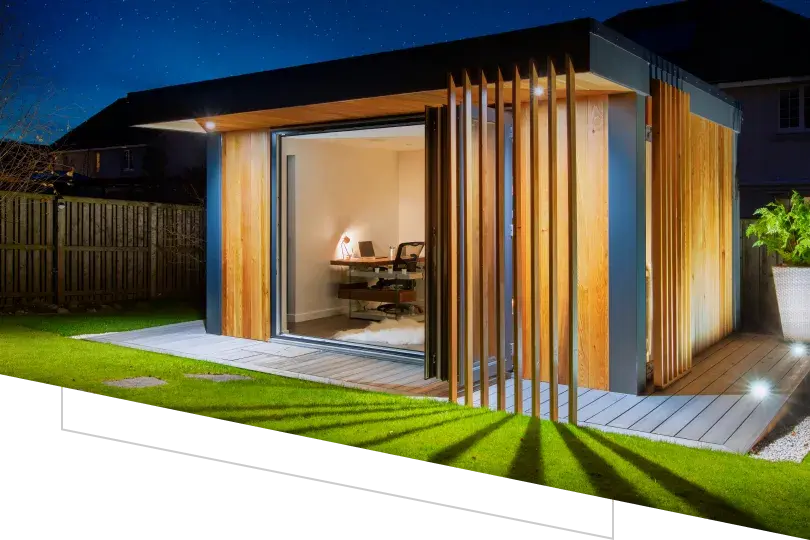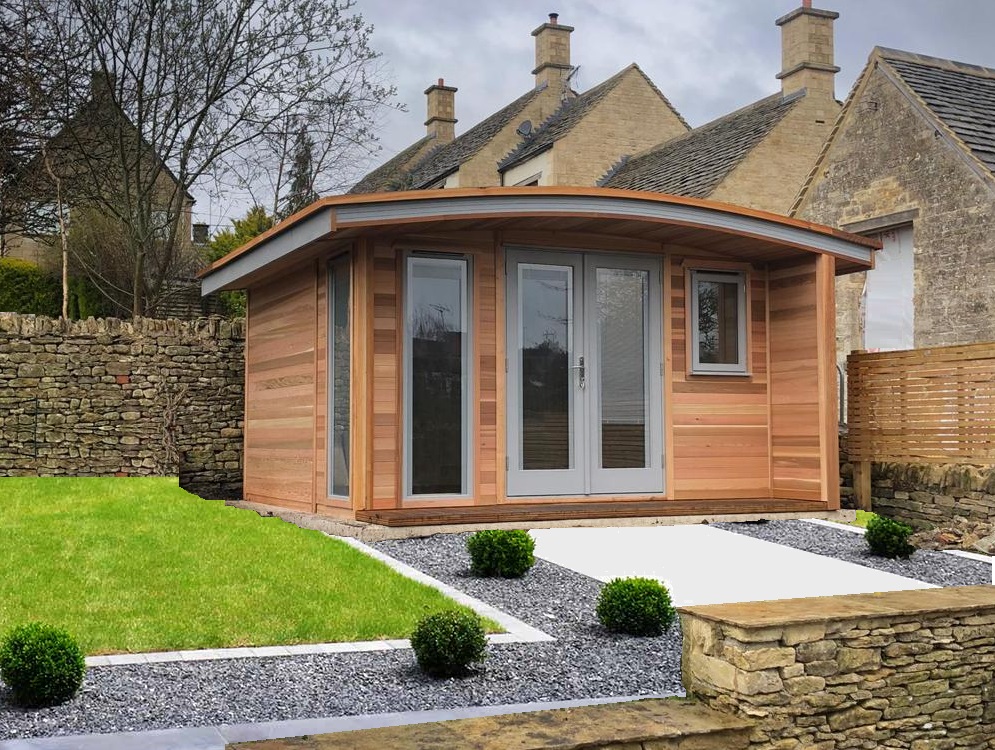New Suggestions On Planning Permission On Garden Buildings
New Suggestions On Planning Permission On Garden Buildings
Blog Article
How Much Planning Permission Will You Need For A Garden Room Etc.?
Highways concerns, whether related to the construction of conservatories, gardens offices, outhouses, or even garden rooms and extensions are likely to have an important influence on the requirement for permission to plan. Here are some important aspects to take into consideration regarding highways:
Planning permission is required if the structure is in conflict with drivers' sightlines or intersections at junctions or bends on the road. The planning authority will evaluate whether the structure poses danger to road safety.
The Highway is near:
Typically, any structures that are near to the highway such as front gardens or extensions close to the street require planning permission. Distance regulations exist to ensure that the construction does not interfere with the safety operation and use of the highway.
Access and Egress:
It is likely that planning permission will be needed to alter existing or new access points. The egress and access points must be secured to avoid disrupting traffic.
Parking Facility
Planning permission is required for any new construction that requires parking spaces or change existing ones. The authority for planning evaluates whether or not the proposed development has enough parking and if it does not result in congestion of parking on streets.
Traffic Generation:
Developments that are expected to create an increase in traffic, for example gardens designed for business use that have clients who visit, require approval from the planning department. Evaluations will be conducted of the effect on traffic volumes as well as safety.
Impact on Pedestrian Access
If the proposed structure encroaches on pavements or pedestrian pathways the building must be approved for planning. A key consideration is to make sure that pedestrian access is not hindered, and is safe.
Construction Effects on Highways:
Planning permission is sometimes needed to limit the effect construction activities have on highways. The authority for planning can set conditions that will minimize the disruption to the road network while construction is in progress.
Drainage and runoff from water
Another consideration is how the new development will affect drainage and water runoff. This includes its impacts on the highway. Planning approval is needed to ensure that any new construction will not cause further flooding or drainage problems that could impact the road.
Street Furniture and Utilities:
Planning permission is required when the proposed construction is likely to affect the street furniture, underground utilities or both (e.g. water cables, pipes, etc.). To address these issues the planning authority must work with the appropriate agencies.
Highway Authority Guidelines
Local highway authorities might have specific guidelines or requirements for developments near highways. Planning permits ensure compliance of these regulations to ensure road safety and efficiency.
Noise and disturbance from traffic:
If the new structure will cause noise disturbance or disruption to traffic (e.g. garden offices that receive visitors or deliveries) Planning permission must be sought to evaluate these effects and then to reduce them.
Accessibility to public transport
Planning permits are required for any development that may affect the accessibility of public transportation facilities, such as bus or train stations. Also, it will be assessed its impacts on the public transportation network and its integration.
Highways are an important factor when deciding if you should allow planning permission for garden rooms or conservatories. To prevent negative effects on traffic, pedestrian accessibility or the safety of roads and infrastructure, it is crucial that the design proposed not impact these aspects. An early consultation with the local highway authority as well as planning authority can solve these issues, and ensure compliance with relevant regulations. Follow the top how to lay electric cable in the garden uk for more info including garden room vs extension, my outhouse, garden outhouses, costco outhouse, do i need planning permission for a garden room with toilet, costco outbuildings, outhouse garden, garden rooms brookmans park, outhouse uk, costco garden rooms and more.
What Type Of Permits Are Needed To Construct Garden Structures And Gardens?
It is important to consider the impacts on the environment when building garden rooms and conservatories. Here are the key environmental aspects to be considered: Biodiversity and Wildlife:
If the proposed structure is likely to impact local wildlife habitats, such as hedgerows, trees, or ponds, the planning permit is required. To minimize and determine the effect the environmental impact, an eco-survey could be necessary.
Protected species and habitats
Permission is needed if there are protected species on the site (e.g. bats or newts) or if they're in protected habitats or are near (e.g. Sites of Special Scientific Interest SSSI). In order to protect them it is essential to adopt specific measures.
Preservation Orders for Trees Preservation Orders
A permit for planning is required for any construction project that involves the removal or alteration trees that are protected by TPOs. Local authorities may request for replacement plants or other mitigation measures.
Risks of Flood Risk and Water Management:
Planning approval is required for developments near or in flood-prone zones. A study of the flood risk (FRA) might be required to make sure that the structure is capable of draining and doesn't increase the risk of flooding.
Sustainable Construction Methods for Sustainable Construction
You might require permission for planning to ensure sustainable construction and materials. It is important to consider the energy efficiency of the materials, their insulation and their carbon footprint.
Drainage and Surface Runoff
A key consideration to consider for the environmental is how the proposed structure will impact drainage and runoff of surface water. Planning permission ensures that proper drainage structures are in place to prevent waterlogging or flooding.
Soil and Land Stability:
The planning permission will be required when construction is likely to alter soil stability or soil quality. This can include issues such as subsidence or soil erosion particularly on sloped areas.
Air Quality
If a development is likely to affect local air quality (such for example, near major roads or industrial areas) Planning permission is required. This ensures that the levels of air pollution remain within acceptable levels, and also that mitigation measures are put in place.
Noise Pollution:
If the proposed use of the extension or garden space is likely to generate significant noise (e.g. or a workshop or music studio) Planning permission is required. The local council must evaluate the levels of noise and their potential impact on neighbors and the environment.
Waste Management:
It is essential to handle the waste appropriately during and after construction. The planning permission permits adequate recycling, disposal of waste and the reduction of environmental impact.
Energy Efficiency
Planning permission can include energy-efficiency demands, like the use of solar panels, high efficiency glazing or green technology. The new structure will have a smaller environmental impact.
Environmental Regulations
Environmental regulations, such as the UK Environmental Protection Act must be observed by all developments. The planning permission is required to make sure that all legal requirements have been met and that the project is sustainable for the environment.
The planning permission granted for gardens, conservatories, garden rooms and outhouses must also consider a wide variety of effects on the natural environment. Consult the local planning authority as early as you can in the planning phase to ensure that you know the specific requirements. View the top costco garden for blog advice including myouthouse, how to get power to a garden room, Tring garden rooms, outhouse garden rooms, garden room conservatory, garden outhouse, garden outhouse, outhouse uk, garden office, how to get power to a garden room and more.
What Is The Planning Permit Required For Gardens, And So On. In Terms Of Utilities And Infrastructure
When you plan to construct gardens, conservatories, outhouses, garden offices or extensions, utilities and infrastructure factors are essential and may influence the need for planning permission. Here are the main factors to consider. Water supply and drainage
It is possible to obtain planning permission when the structure is linked to the local water supply or drainage system. The local authority for water could be required to evaluate the impact on the local water and sewage system.
Gas and Electricity Connections
A planning permit could be required if the building is being constructed to be connected to electricity or gas. The connection must comply with construction regulations and safety rules.
Utility Easements
Planning permission might be required if the proposed construction is located in an area that is designated for infrastructure and utilities. Local utility providers may have to approve any construction which takes place within these zones.
Septic Tanks and Sewage Systems
If the building is going to require a septic tank or an on-site treatment system for sewerage, a planning permit will be required. In these cases it is crucial to adhere to standards for health and environmental regulations.
Drainage of Surface Water Management
Planning permission might be needed to address drainage and surface water runoff of the proposed structure. Measures to prevent erosion, flooding and pollution of water may have to be taken.
Access to Utilities for Construction
Planning permission is required when temporary utility access (such water) is needed for construction. Temporary connections have to meet the standards of safety and environmental protection.
Impact on local infrastructure
The planning permission is needed to determine the effect of the proposed construction on local infrastructure, including utilities, roads, and public services. Local authorities will determine the infrastructure that is in place and whether it can support the development.
Waste Management:
Planning permission may involve obligations for waste management and recycling during and after construction. To reduce environmental impacts, there must be provisions for recycling as well as garbage disposal.
Energy Efficiency and Renewable Energy:
It is possible that you require approval to construct renewable energy systems like solar panels or heat pumps in a new building. It is essential to ensure compliance with environmental and building standards.
Telecommunications, Internet and Connectivity
Planning permission may be required in the event that the proposed structure going to require internet access or telecommunications connections. Compliance with regulations and standards for telecommunications infrastructure is essential.
Access to Roads and Footpaths
Planning permission may be required for the construction or modification of access roads or footpaths for the construction of the new structure. The construction of roads and footpaths must conform to the highest safety standards.
Accessibility to Public Transport
If the new structure impacts access to public transportation facilities (such as train stations or bus stops) Planning permission might be required. The public transport infrastructure must conform to standards and regulations.
In the end the importance of infrastructure and utilities are the most important factors to consider when deciding whether planning permission is required for conservatories, garden rooms and outhouses, gardens extensions, offices or other buildings. In order to ensure that the rules and standards are followed it is essential to consult the local planning authority in the early stage in the planning process. See the top rated what is the difference between a garden room and a conservatory for blog examples including composite summer house, costco outhouse, garden room, outhouse building, costco garden buildings, best electric heater for cabin, garden rooms in St Albans, best heater for log cabin, Tring garden rooms, garden room or extension and more.